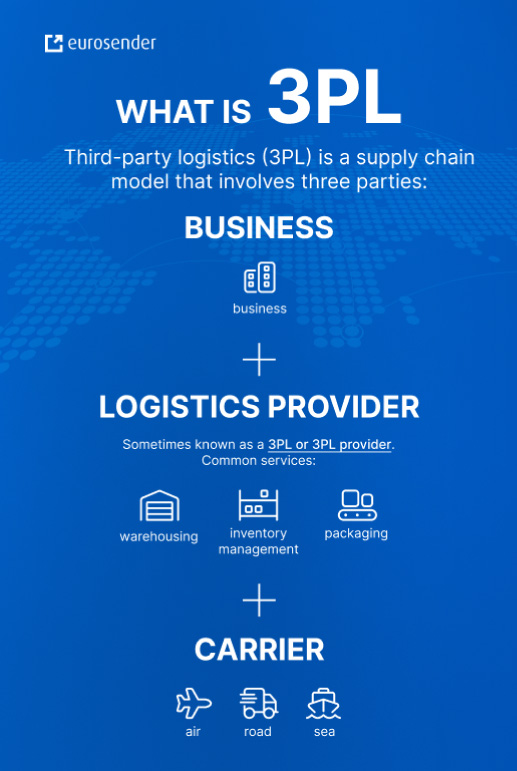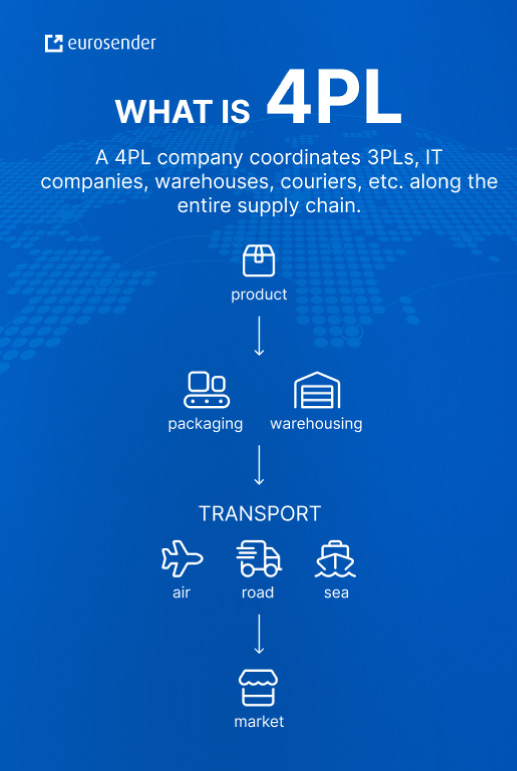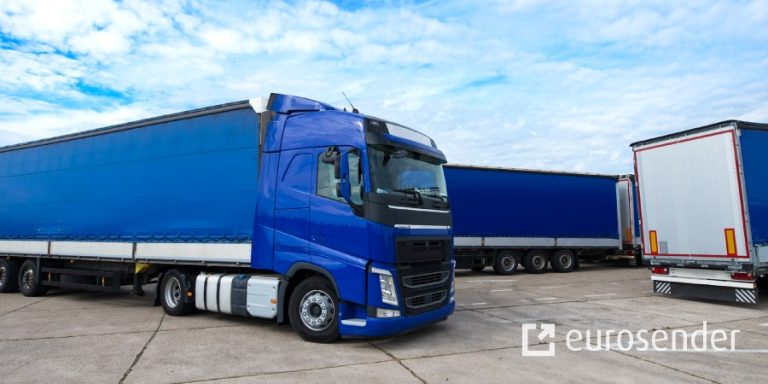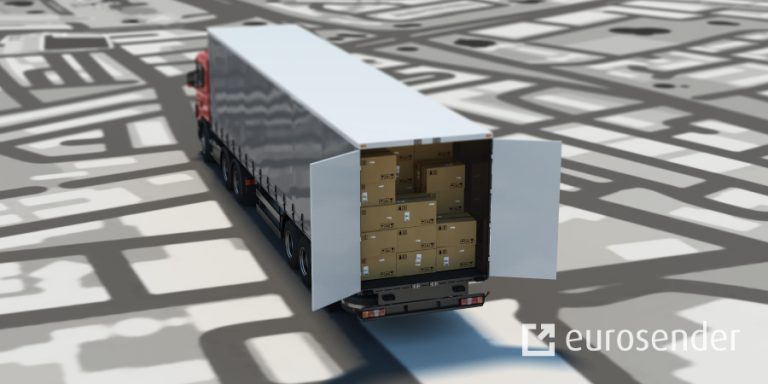3PL vs 4PL: Which Should Your Business Choose?
TL;DR
- 3PL focuses on handling logistics operations like transport and warehousing, providing flexibility but offering less strategic oversight of the entire supply chain.
- 4PL provides complete end-to-end management of the entire supply chain, with a focus on optimization and strategic coordination across multiple services.
- 3PL is ideal for businesses needing control over specific logistics tasks, while 4PL suits companies seeking comprehensive solutions and a single point of contact.
- When choosing, consider factors like scope of services, expertise, cost, technology needs, and how well the provider aligns with your business strategy.
As an SME, the success of your business relies heavily on the efficiency of your supply chain and logistics operations, especially when expanding into new markets. That’s why it is crucial to have a solid understanding of the differences between 3PL and 4PL.
In this article, we will delve into the differences between 3PL and 4PL logistics, while exploring their pros and cons. Our aim is to empower you to identify the optimal logistics partner that will drive your company’s success forward. Let’s dive in!
Request an individual offer
3PL vs 4PL: an overview of each type of logistics provider
What is a 3PL?
A third-party logistics provider (3PL) is a company that provides logistics services, such as transport and warehousing, to client companies, such as SMEs. The client company remains in charge of overseeing the supply chain, while the 3PL manages the various logistics operations involved in getting products from point A to point B. 3PL providers can offer a wide range of services, from freight forwarding to customs clearance to packaging and more.

Read more about:
The pros and cons of a 3PL
Pros
- More control: As the client company remains responsible for overall supply chain management, it has more control over the operations.
- Service-based flexibility: 3PL providers can be a good choice for companies with varying logistics needs, as you can hire them for specific services as and when they are needed.
- Direct cost savings: By outsourcing logistics operations, companies can save on personnel, infrastructure, and other related costs.
Cons
- Limited oversight: While you have more control over the overall supply chain, you have less control over specific logistics operations when working with a 3PL.
- Less equipped for specific requirements: If your business operates in a highly regulated industry or requires specialised services like cold storage or temperature-controlled delivery, a standard 3PL may not be suitable.
What is a 4PL?
A fourth-party logistics provider (4PL), also known as a lead logistics provider (LLP), is a logistics provider that oversees and manages the complete logistics network and supply chain of a client company. Unlike a 3PL, a 4PL takes a more strategic and holistic approach to logistics, providing end-to-end coordination and optimisation of all logistics activities. 4PL providers can help with everything from sourcing and procurement to transport planning, warehouse management, and more.

You may also be interested in:
The pros and cons of a 4PL
Pros
- Strategic approach: 4PL providers offer a more strategic and holistic approach to logistics, focusing on optimising the entire supply chain and logistics network.
- Complete solution flexibility: 4PL providers can offer a wide range of services and can adjust quickly to changing business needs.
- Cost savings through network optimisation: By outsourcing the entire supply chain to a single provider, you can save money on logistics operations.
Read more: Advantages of 4PL.
Cons
- Less control: With a 4PL provider, you have less direct oversight over individual logistics operations.
- Higher costs: 4PL providers typically charge more than 3PL providers as they provide a more comprehensive logistics service. However, the pricing ultimately depends on the specific services required and the negotiation between the company and the logistics provider.
Main differences between 3PL and 4PL logistics
When it comes to logistics management, distinguishing between 3PL and 4PL is crucial. The ongoing debate surrounding the superiority of 3PL vs 4PL logistics providers has piqued the interest of many companies. Understanding the disparities between these two logistics models is vital for businesses of all sizes.
Here are some key differences between 3PL and 4PL logistics:
- A 3PL manages one part of the supply chain – the logistics
- A 4PL coordinates the whole supply chain – like warehousing, distribution, and software
- A 3PL concentrates on the practical aspects of day-to-day operations, helping to transport your goods from A to B
- A 4PL’s key objective is to concentrate on the bigger picture, offering an end-to-end solution that integrates multiple service providers into a single network
- A 3PL serves as a single link in your business’s supply chain and may be one of several points of contact for logistics services
- A 4PL is your single point of contact, responsible for managing your supply chain and various logistics services
- A 3PL often owns physical assets needed for logistics, such as trucks, distribution centres, and warehouses
- A 4PL mostly owns intangible assets such as IT systems, and other software
By understanding these contrasts, businesses can make informed decisions on whether 3PL or 4PL is best suited to their unique requirements and goals.
Read more comparisons:
- Difference between 1PL, 2PL, 3PL, 4PL, 5PL
- Difference between cargo vs freight
- Difference between carriers vs couriers
- Difference between carriers vs freight forwarders
- Difference between logistics vs freight forwarding
- Difference between freight forwarders vs freight brokers
3PL vs 4PL: how to choose the right option for your business
When it comes to choosing between 3PL vs 4PL for your company, there are several factors to consider:
- Scope of services: Assess your specific needs and the extent of outsourcing you require. If you only need assistance with specific logistics functions, a 3PL may be suitable. However, if you want a comprehensive, end-to-end management approach for your entire supply chain, a 4PL might be more beneficial.
- Expertise and resources: Evaluate the level of expertise and resources your business possesses in managing logistics. If you lack the necessary knowledge, infrastructure, and capabilities, a 3PL can provide the required expertise. On the other hand, if you have in-house logistics expertise and resources but require strategic oversight and optimisation, a 4PL can offer higher-level management.
- Cost and flexibility: Analyse the cost implications of both options. A 3PL may provide more flexibility, allowing you to scale up or down based on your needs, which can be cost-effective for businesses with fluctuating demands. A 4PL typically involves deeper integration and longer-term commitments, potentially leading to higher costs.
- Technology and innovation: Consider the role of technology and innovation in your logistics operations when choosing between a 3PL and a 4PL. While a 4PL might offer advanced technology, analytics, or digital solutions, it does not necessarily mean that they are superior to a 3PL in terms of technology capabilities. Evaluate the specific technology requirements of your business and assess whether a 3PL or 4PL can meet those needs effectively.
- Strategic alignment: Evaluate the alignment between your business goals and the objectives of the logistics provider. Ensure their vision, values, and approach align with your company’s overall strategy and objectives.
Read more: 6 challenges faced by SMEs (& solutions).
Eurosender: Your 4PL logistics partner
If you are looking for a comprehensive and strategic logistics partner for your small business, look no further than Eurosender. Our 4PL logistics services offer end-to-end management and optimisation of your logistics operations, helping you streamline your supply chain and improve your cost efficiency. With Eurosender, you get access to our extensive network of logistics partners and cutting-edge technology tools to help you stay ahead of the competition.
Want to know more?
Check our articles that explore different topics within the logistics industry.
Request an individual offer
About the author






